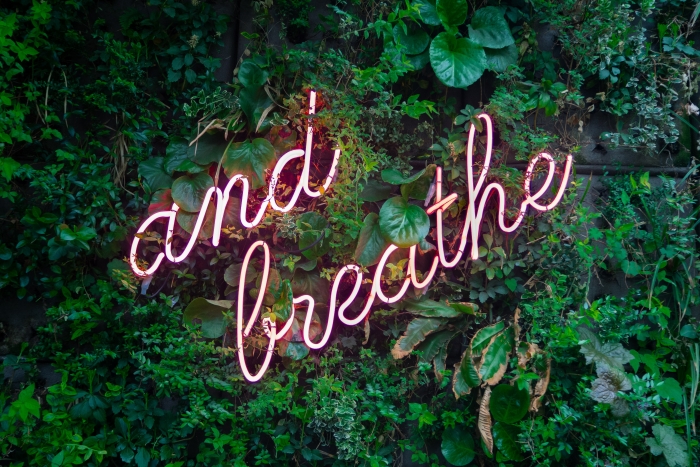Mental Health Awareness Week
Written by HE Engagement Assistant, Bryony Mutton
Mental Health Awareness Week will be taking place this month from the 18th-24th of May. The chosen theme is “kindness”, a timely choice given the ongoing coronavirus pandemic. As Mark Rowland, Chief Executive of the Mental Health Foundation, highlighted recently, ‘Now more than ever, we need to re-discover kindness in our daily lives. Kindness unlocks our shared humanity and is central for our mental health […] particularly at times of great stress’. One of the strands underpinning our work here at HeppSY is ‘Confidence & Resilience’. Promoting the wellbeing, confidence and resilience of both the staff and students we work with is more important than ever given the challenging nature of the circumstances we currently find ourselves in, and so in this blog post we have included some wellbeing tips that might help staff and students across the HeppSY partnership through this period.

Try to stick to a routine: Matt Haig, author of Notes on a Nervous Planet (2018), reinforces this, expressing, ‘Routines are everything. Getting out of bed when we don’t have to. Having a shower. Getting dressed […] When reality knocks us, routine gives us the structure to absorb it’. One idea is to make a little to-do list each day, and tick off things when you’ve done them. Celebrate the little things, no matter how small! This said, being flexible with our routine during this time is equally important. Keep it realistic and simple, and don’t beat yourself up if you sleep in or don’t get round to doing something you intended to on a particular day. If working from home, try to keep your work space separate to the spaces you relax in, and take plenty of breaks away from your work space throughout the day.
Hydrate & nourish: pay attention to your body. It’s easy to forget to keep ourselves well-hydrated, especially when we’re just at home. Start the day with a fresh glass of water before having your morning tea or coffee and remember to drink water at regular intervals throughout the day. Try to eat regular, wholesome meals too to keep well-nourished and energised. It might sound basic, but not eating or drinking well can have a detrimental impact not only on our physical health, but our emotional and mental wellbeing too.
Tap into the breath: we rarely pay attention to our breathing, but tapping into the breath and practising deepening and expanding our breathing has a range of benefits for the mind-body. Simple breathing exercises, body scans and guided meditations can be found on YouTube and a number of apps such as Headspace, Stop Breathe & Think and Calm. Deep breathing calms the sympathetic nervous system (the fight-or-flight response) and stimulates the parasympathetic nervous system which aids relaxation, and is therefore one of the most efficient ways of releasing tension in the body, calming the mind and quietening turbulent thoughts.
Engage the body: movement is also one of the best ways of improving our physical, emotional and mental wellbeing. Be it walking around the block or the nearest park, running, doing a gentle yoga flow on YouTube, dancing around your kitchen to your favourite playlist or doing a Joe Wicks workout – it doesn’t need to be impressive or look good, the important thing is that is feels good. Movement and exercise are natural anti-depressants. They boost the serotonin and endorphins in our body and as a result boost our state of mind too, which is more important than ever during this time of isolation and work-from-home, as our day-to-day movement has drastically decreased. Start off by aiming to do at least 15-20 minutes a day and aim for consistency, treating it as part of your routine.
Connect (& disconnect): connect with somebody at least once a day, even if just to check-in. Sometimes we might not feel in the mood, but a phone call to a friend can make the world of difference to life our mood. Talking to others brings us out of our own headspace and is mutually beneficial. It reminds us that we are all experiencing this together as a collective and that we are not alone, and allows us to practise compassion, good listening and empathy. As important as it is to connect, it is equally important to recognise when you need to disconnect. Often social media content runs the risk of luring us in to compare ourselves to what we see online, creating a disjunct between how we might be feeling and how others appear on social media. If going on social media is making you feel worse rather than better, take a break from it and focus on being kind to yourself.
Step outside: at least once a day step outside for some fresh air and a leg stretch. If possible, go somewhere you can connect with nature. Being immediately present to the natural world offers a refreshing contrast to the mediated reality we are almost constantly immersed in. Being outdoors is also a great opportunity to practice mindfulness, be it noticing the weather, how this feels against our skin, taking some deep, conscious breaths, synchronising our breathing and walking or noticing the wildlife around us.
Reflect – What can we do for others?: Take a moment to reflect and think, ‘Is there something I can do to help somebody else?’ Even if it’s just sending a quick text to a friend to see how they are, or asking your neighbour if you can grab them anything when you go to the shop, little gestures go a long way in times like these and it is important to practise compassion for others and to remember we are part of a community. There are lots of fun challenges online too, such as the Virgin 5K Run for Heroes, but again, it is important to remember that the good comes from the act itself, not the performance of it on social media, and that sending a text or dropping some shopping off for a neighbour is just as valuable.
Practise gratitude: reflect on what you are grateful for in the moment. Maybe it’s your cosy duvet, perhaps you just had a lovely pick-me-up chat with a friend or a bit of a mutual vent because you’re both feeling rubbish, maybe you enjoyed your dinner and an episode of something on Netflix. Kevin Braddock, author of Everything begins with asking for help: An honest guide to depression and anxiety, from rockbottom to recovery (2019), explains, ‘Practising gratitude [is] a cleanser, sloughing off ill-will, irritation and malice, and it’s a reminder that your life might not be quite as bleak as it appears’. He points out that it is also an effective way of switching our attention from things we haven’t got to the things we have got, “counting your blessings” as it’s otherwise known.
Notes-to-self: little reminders might help when we are particularly struggling on one day more than others. Writing mantras such as ‘I will not allow the uncertainty of the week ahead to rob me of the peace and joy I have today’ out on a phone memo or better still on a Post-It note to then stick somewhere visible reminds us to draw our attention back to what is within our control rather than what isn’t [1]. There are plenty of mindfulness accounts you can follow on social media too which post mantras like these, such as Instagram accounts @sbtbreathe @mantramagazine @lalahdelia @yung_pueblo and many more.
Hopefully these little things can offer some sort of respite or comfort in these uncertain and challenging times. If you feel you are in need of support or know somebody who is, here are some links to organisations that offer mental health support and guidance.
https://www.mentalhealth.org.uk/ | https://youngminds.org.uk/ | https://www.sheffieldmind.co.uk/ | https://www.samaritans.org/ | https://www.nightline.ac.uk/ | https://www.bigwhitewall.com/ |








